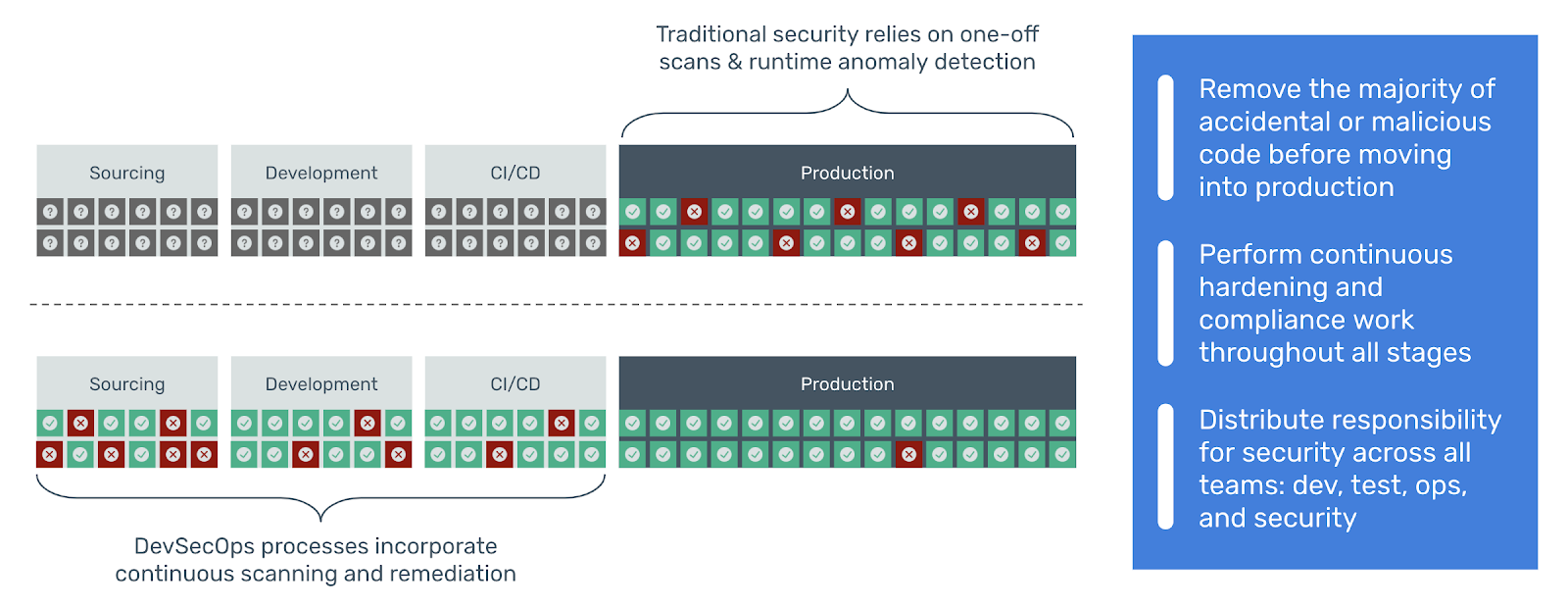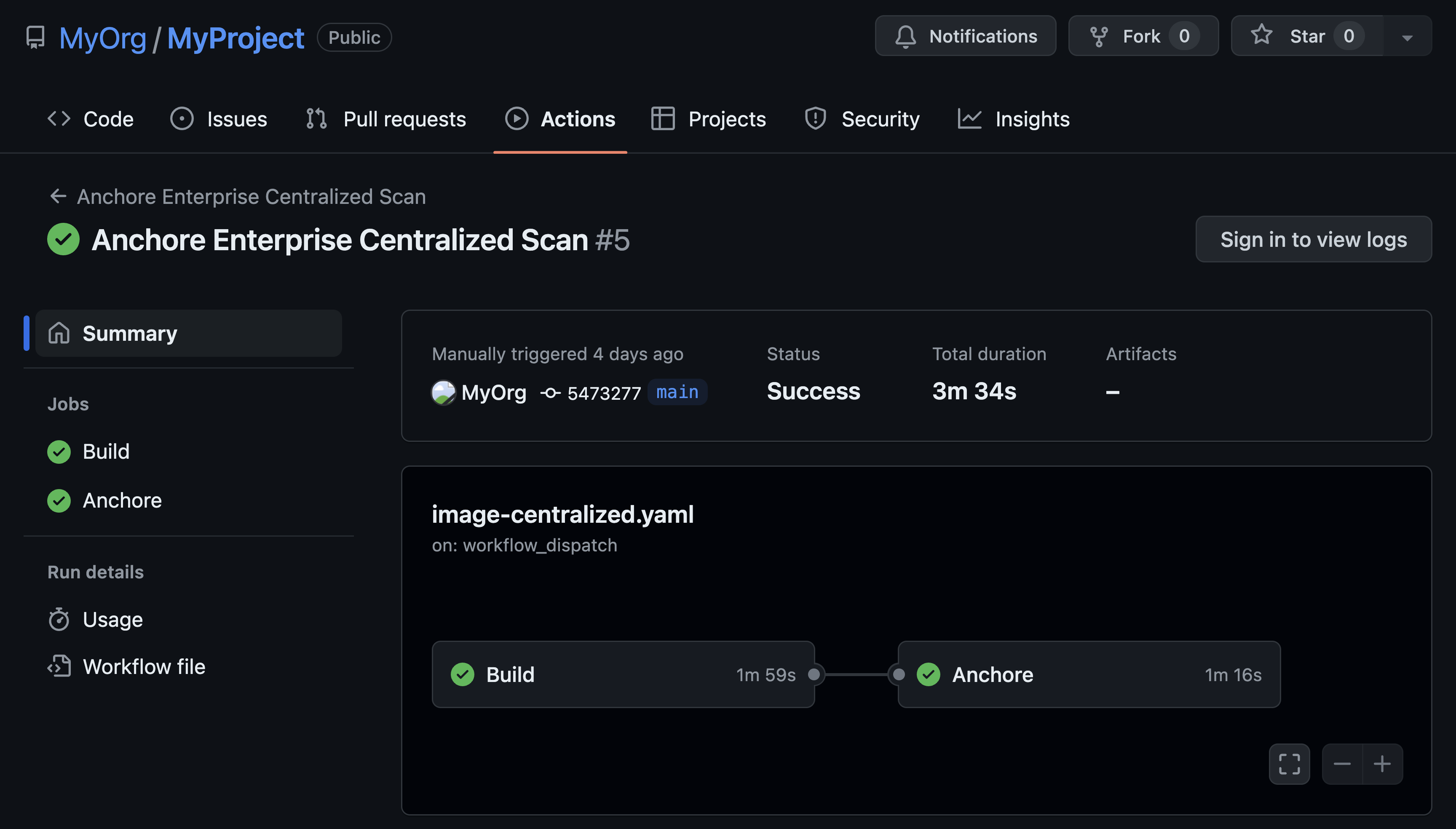Toolkits and orchestrators such as Docker and Kubernetes have been increasingly popular for companies wishing to containerize their applications and microservices. However, they also come with a responsibility for making sure these containers are secure. Whether your company builds web apps or deploys mission-critical software on jets, you should be thinking about ways to minimize your attack surface.
Aside from vandalizing and destroying company property, hackers can inflict massive damage simply by stealing data. In 2017, Equifax was fined over $500 million after customer data was stolen. British Airways and Uber have also been victims of data breaches and were fined hundreds of millions of dollars in recent years. With an average of 75 records being exploited every second, preventing bad actors from gaining access to your containers, pipelines, registries, databases, clusters and services is extremely important. Compliance isn’t just busywork, it keeps people (and their data) safe.
In this post, we'd like to discuss the unique approach Anchore takes to solving this problem. But before we get into that, let’s take a moment to define the buzzword that is probably the reason you're reading this post: DevSecOps.
In a nutshell, DevSecOps is a modernized agile methodology that combines the efforts of development, operation and security teams. Working together to integrate security into every step of the development process, teams can deliver applications safely, at massive scale, without burdening them with heavyweight audits. DevSecOps helps teams catch issues early, before they cause damage and while they are still easy to fix. By making security a shared responsibility and shifting it left (towards developers and DevOps engineers), your company can deal with vulnerabilities before they enter production, saving time and reducing costs drastically.

In the following sections, we'll cover a few unique reasons why organizations such as eBay, Cisco and the US Department of Defense have made Anchore a requirement in their software development lifecycle to help implement security with DevSecOps.
Lightweight Yet Powerful
At Anchore, we believe that everyone should know what’s inside the container images they build and consume. That is why the core of our solution is an open source tool, Anchore Engine, which performs deep image inspection and vulnerability scanning across all layers. When users scan an image, Anchore Engine generates a software bill of materials (SBOM) that consists of files, operating system packages, and software artifacts (including Node.JS NPM modules, Ruby GEMs, Java archives and Python packages). Anchore Engine also allows users to check for CVEs, secrets, exposed ports and many others, but more on that later!
Anchore Engine was designed to be flexible, so you can implement it anywhere:
- If you’re a developer and want to do a one-time scan of a container image for vulnerabilities before pushing any code to version control, you can use our CLI or API
- If you’re a DevOps engineer and wish to scan container images before pushing to or after pulling from a registry, you can easily integrate with your preferred CI/CD tool (CircleCI, Jenkins, GitHub Actions, GitLab) or perform inline scanning and analysis
- If you’re a security engineer responsible for locking-down clusters, you can use our Kubernetes Admission Controller to prevent any pods from running vulnerable containers
Anchore Engine can be configured on any cloud platform or on-premises, as well as with any Docker V2 compatible registry (public or private). Regardless of where you’re using Anchore Engine or how you’re using it, it's important to know the exact contents of your containers so appropriate security measures can be taken.
Strict But Adaptable
Anchore Engine enables users to create custom security rules that can be adapted to align with company policy. For example, users can create and define checks for vulnerabilities, package whitelists and blacklists, configuration file contents, leaked credentials, image manifest changes, exposed ports and more. These rules allow you to enforce strict security gates like Dockerfile gates, license gates and metadata gates (check out our docs for more info!) before running any risky containers.
You may have heard of Infrastructure-as-Code, but have you heard of Security-as-Code or Policy-as-Code? Because Anchore policies are standard text files, they can be managed like source code and versioned over time as the software supply chain evolves and best practices are developed.
In addition to Anchore Engine, we offer Anchore Enterprise, which includes many enhanced features such as an easy-to-use interface, an air-gapped feed service, and notifications with Slack, Jira, GitHub or Microsoft Teams. There are many more features and capabilities of both Anchore Engine and Anchore Enterprise, but that is a topic for a later post.
Compliant And Growing
Just days away from becoming a CNCF Kubernetes Certified Service Provider, Anchore has been working hard to help companies fulfill their security requirements. Oftentimes, we receive calls from security teams who were asked to make their software adhere to certain compliance standards. Anchore is proud to help organizations achieve NIST SP 800-190 compliance, CIS Benchmarks for Docker and Kubernetes, and best practices for building secure Docker Images.
If you work with government agencies and are interested in another level of compliance, please check out our newest product, Anchore Federal! It includes a bundle of policies created in collaboration with the United States Department of Defense that can provide out-of-the-box compliance with the required standards.
In this post, we've listed a few key reasons why organizations choose to use Anchore. You may have noticed we also interchangeably used the words “you” and “your company”. That’s because - in today’s world of containers - you, as the reader, have the responsibility of talking with your company about what it’s doing to prevent threats, why it should be implementing DevSecOps processes, and how Anchore can help through container security. We are here to help.


